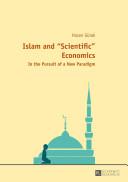
Anglo-American Idealism
Thinkers and Ideas
This volume is devoted to a critical discussion and re-appraisal of the work of Anglo-American Idealists of the nineteenth and twentieth centuries. Idealism was the dominant philosophy in Britain and the entire English-speaking world during the last decades of the nineteenth century and the beginning of the twentieth. The British Idealists made important contributions to logic, metaphysics, aesthetics, ethics, social and political philosophy, philosophy of history, philosophy of religion and philosophy of mind. Their legacy awaits further exploration and reassessment, and this book is a contribution to this task. The essays in this collection display many aspects of contemporary concern with idealistic philosophy: they range from treatments of logic to consideration of the Absolute, personal idealism, the philosophy of religion, philosophy of art, philosophy of action, and moral and political philosophy. During the first decade of the twenty-first century, the work of the Anglo-American Idealists has once again been widely discussed and re-considered, and new pathways of research and investigation have been opened.
- ISBN 13 : 9783039108954
- ISBN 10 : 3039108956
- Judul : Anglo-American Idealism
- Sub Judul : Thinkers and Ideas
- Pengarang : James Connelly, Stamatoula Panagakou,
- Kategori : Philosophy
- Penerbit : Peter Lang
- Bahasa : en
- Tahun : 2010
- Halaman : 389
- Halaman : 389
- Google Book : http://books.google.co.id/books?id=1GS9oXduO9AC&dq=intitle:anglo+american&hl=&source=gbs_api
-
Ketersediaan :
MARIE-LUISE RATERS Art, Feeling and Truth: The Central Problem of the
Aesthetics of Anglo-Saxon Idealism The aesthetics of the English and German
Enlightenment (Shaftesbury and Burke) conceived the work of art as the
adequate ...









